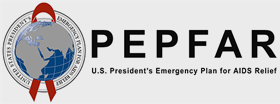Antimalarial medicines are typically distributed in the high-malaria season months of July, August, September, and October, but in 2020 the COVID-19 pandemic placed an extra burden on health systems in Ghana and restricted movement of health care personnel. To ensure that the 2020 seasonal malaria chemoprevention campaign could continue, the USAID Global Health Supply Chain Program-Procurement and Supply Management (GHSC-PSM) project funded by the U.S. President’s Malaria Initiative (PMI) worked with the National Malaria Control Program (NMCP) to adopt recommended safety measures and ensure they were strictly practiced throughout the campaign. GHSC-PSM reviewed training materials on SMC with COVID-19 safety protocols, as well as other logistics management tools, and supported the NMCP in training supervisors and volunteers to ensure effective implementation while strictly adhering to COVID-19 safety protocols. These included using social distancing and providing masks and hand sanitizer. With PMI funding, the NMCP also rented additional vehicles to support monitoring and supervision of the campaign.
In previous campaigns, volunteers administered medicine to children; this year volunteers received personal protective equipment and training on safely monitoring medicine administration and adhering to COVID-19 safety protocols. During the campaign, volunteers guided parents and caregivers to administer the medication to their children. Parents sat with their children at a safe distance from others, mixed the sweetened tablet with water, and watched while their children drank the mixture from cups under supervision from the volunteers. Volunteers and family members observed COVID-19 protocols such as wearing facemasks, maintaining distance, and handwashing.
Despite the fear of COVID-19 infection, parents, caregivers, and volunteers recognized the importance of maintaining malaria prevention efforts. As a result, 1.9 million doses of antimalarial medicines were distributed to 694,586 children between three months and five years of age in PMI-supported Northern, North East, and Savanna regions—even more than in 2019.


